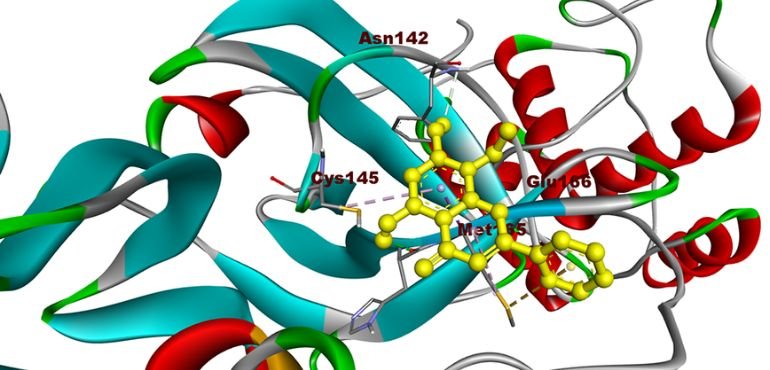Exploring Molecular Docking for Nutraceutical Targets
Exploring molecular docking as a tool to find nutrient molecular targets in disease prevention. Natural bioactive compounds found in dietary supplements have drawn attention to their health benefits beyond basic nutrition including disease prevention and treatment self-regulation but the exact mechanisms by which nutrients exert their benefits are often unclear and challenges in clinical practice.
Molecular docking refers to the preferred orientation of a small molecule (ligand) that binds to a protein (target), forming a stable complex. This approach is important in drug discovery, including nutrients, because it enables researchers to explore and predict interactions between nutrient compounds and their target biological compounds at the molecular level efficiency and safety issues.
The method of molecular docking requires several basic steps. Initially, computational models are used to generate nutrients (ligands) and disease-related proteins (targets). Docking simulations then address the interactions between those ligands and targets to determine the most stable binding structures. Scoring functions examine and sort these interactions, and determine the potency and stability of ligand-target complexes. Finally, experimental data are used to confirm the predicted correlations to confirm the statistical findings. This rigorous process ensures that the targets and correlations identified are valid and relevant for disease management.
In practical applications, molecular docking has identified nutrients that effectively target specific proteins involved in various diseases. For example, molecular docking in cancer research has contributed to the identification of nutrients that inhibit cancer cell proliferation by targeting proteins associated with cell cycle regulation and apoptosis as well as the analysis of dominant nutrients with anti-inflammatory properties in heart disease have also been implicated in such as well as involvement in neurodegenerative diseases such as Alzheimer's and Parkinson's disease. Enzymes involved in disorders can interact with receptors, potentially providing therapeutic benefit. Furthermore, nutritional targeting of metabolic pathways has shown promise in conditions such as addressing diabetes and obesity through molecular docking studies.
Several case studies illustrate the successful application of molecular docking in nutritional research. For example, resveratrol, a compound found in grapes, has been studied for its ability to inhibit the growth of cancer cells by targeting a specific kinase. Curcumin from turmeric is known for its anti-inflammatory properties associated with interactions with various inflammatory mediators. Epigallocatechin gallate (EGCG), a compound found in green tea, has shown neuroprotective effects by interfering with enzymes involved in neurodegenerative diseases. These examples highlight the practical value of molecular docking in identifying effective nutritional targets and understanding the mechanisms of action.
Looking ahead, the future of molecular docking in nutritional research holds great promise. Improvements in statistical tools are expected to improve the accuracy and reliability of docking predictions, and facilitate the precise identification of molecular targets Integrating docking studies with experimental data is an option is needed to translate computational findings into useful clinical applications. Furthermore, the concept of personalized nutrition, where molecular docking helps to develop nutritional interventions based on individual genetic and molecular profiles, represents an exciting frontier in this field. Bridging the gap between computational predictions and experimental validation can improve significantly.
In conclusion, molecular docking has transformative potential as a valuable tool in the context of nutritional research. Molecular docking is poised to play an important role in the development of the field by providing insights into molecular mechanisms of action and helping to develop targeted nutritional therapeutics Integrating molecular docking into pathways experimentation and personalized dietary strategies can lead to more effective and safer health care.








